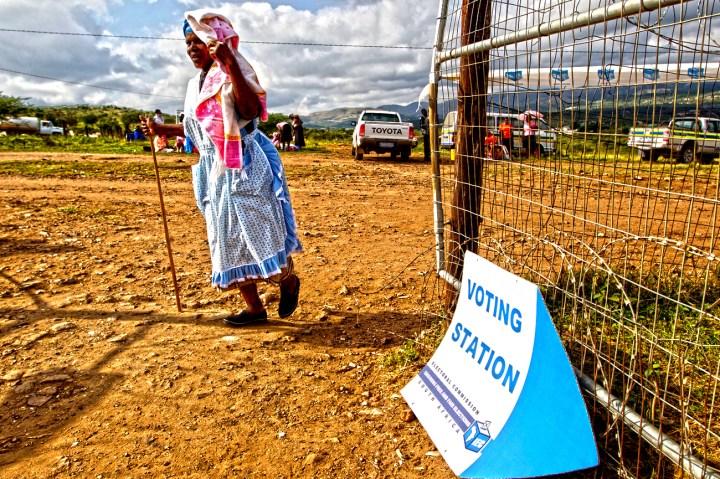South Africa
June by-elections: double-digit losses for ANC

A total of 14 wards were contested in the March by-elections and seven in April. The June by-elections were a more sedate affair by comparison, with only four wards really being contested. Even so, the ANC suffered double-digit losses of support in three of these four wards. By PAUL BERKOWITZ
There were nominally five wards up for grabs in the June by-elections which took place on Wednesday. Three of these wards were won in the 2011 elections by the ANC; one was won by the DA and one by the IFP. All five seats were retained by the incumbent parties with few surprises on offer.
In the Eastern Cape, in Ward 17 of Emalahleni (Lady Frere) the ANC retained its seat in an uncontested election. Potential rivals might have decided that contesting a seat that was won with 88% of the vote in the 2011 elections wasn’t worth the effort. The seat was made vacant upon the death of the previous councillor.
The other Eastern Cape ward that was made available on the resignation of the councillor was Ward 8 in Matatiele. The ANC had won this ward in 2011 with 80% of the vote with no real challenge from Cope (6%) the DA (4%) or the regional parties (AIC 6%, UDM 4%). The ANC retained the ward with 67%, but the DA increased its share quite significantly, garnering 27% and winning two of the seven voting districts outright. The turnout for the ward was slightly lower than in 2011 (49% down from 55%).
It’s possible that the rise in the DA’s share of the vote was partly protest action by the municipality’s residents against the ANC, although the DA is convinced that it heralds the party’s growth in the region.
In the only DA-controlled ward of these by-elections, in Ward 33 of Matjhabeng (Welkom) the party successfully retained its seat following the resignation of its councillor. In 2011 the DA won the ward with 62% of the vote to the ANC’s 34% (the ACDP, Cope and the FF+ received the remaining crumbs). The DA increased its share of the vote in the by-election to 77% while the ANC’s share fell to 21%. The voter turnout did fall quite sharply from 54% to 33% but this is a convincing retention by the DA.
The most interesting outcome was in Ward 1 of Nqutu in KwaZulu-Natal, where the by-election was triggered on the death of the councillor. In the 2011 elections the IFP took the ward with 49% of the vote to the ANC’s 43%. Only 157 votes separated the two parties and even the NFP received more votes than this slim margin of victory (170 votes and 6% of the total). Both the ANC and the IFP won 14 seats in the municipal council in 2011, and the municipality is run by an ANC-NFP coalition, which has 19 of the 34 seats available. An ANC victory on Wednesday would not have handed outright control of the municipality to the ANC, but it would have given the party bragging rights as the single biggest party in the municipality and reinforced the trend of ANC growth/ IFP decline in the province.
Not only did the ANC not wrest the seat from the IFP, the latter increased its share of the vote from 49% to a convincing 68%. The ANC’s share fell to 27% while the NFP more or less treaded water. There are a few scenarios that could explain this outcome (protest voting, unhappiness with the new coalition) but none of them is good news for the ANC.
The death of the ANC councillor in Ward 12 in the Limpopo municipality of Blouberg triggered the last by-election. The ANC won the ward with 77% in 2011 and the voters returned the seat to the party with an even greater majority of 81% in a by-election where voter turnout fell from 55% to 42%. The DA may have hoped to make inroads here, but were only able to retain the 16% of the vote they won last year. For all the focus that the opposition has brought to bear on the ANC’s maladministration in the province, the northern provinces of the country are the ANC’s houses of brick, and all the huffing and puffing of the DA has not yet delivered wholesale results.
If these elections confirm anything, it’s that Mangaung is casting a long shadow on all things political. If it’s not happening in the Western Cape, the ANC seemingly doesn’t have the time or resources to galvanise its supporters. Apart from the uncontested Eastern Cape ward and the Limpopo slam-dunk, the party lost a fair chunk of support in the other three wards it contested. The growth of the IFP in particular is almost an anachronism and a reversal of the gains made by the ANC in the province in recent years. Party supporters will hope that these are isolated incidents, but the horse-trading at the national level looks like it’s taking its toll on party machinery at the local level. The DA and IFP must be wishing that the party held its elective conferences more often. DM
















 Become an Insider
Become an Insider